HEC Invests in Inaugural FrancoTech Gathering
HEC Invests in Inaugural FrancoTech GatheringThis year’s first-ever FrancoTech Summit saw HEC Paris showcase its commitment to innovation and entrepreneurship through its ambassadors from the HEC Innovation & Entrepreneurship Institute. The school’s ecosystem captured the attention of high-profile attendees, including the French Minister Delegate for Foreign Trade Sophie Primas and French business executive Pascal Cagni. The event also offered a platform for some of the school’s startup founders such as Bluco, created by students from the X-HEC Entrepreneurs and HEC Startup Launchpad programs. Alumni from the HEC Challenge + Afrique program also reflected the creativity of our emerging entrepreneurs, who converged in central Paris for the two-day event.
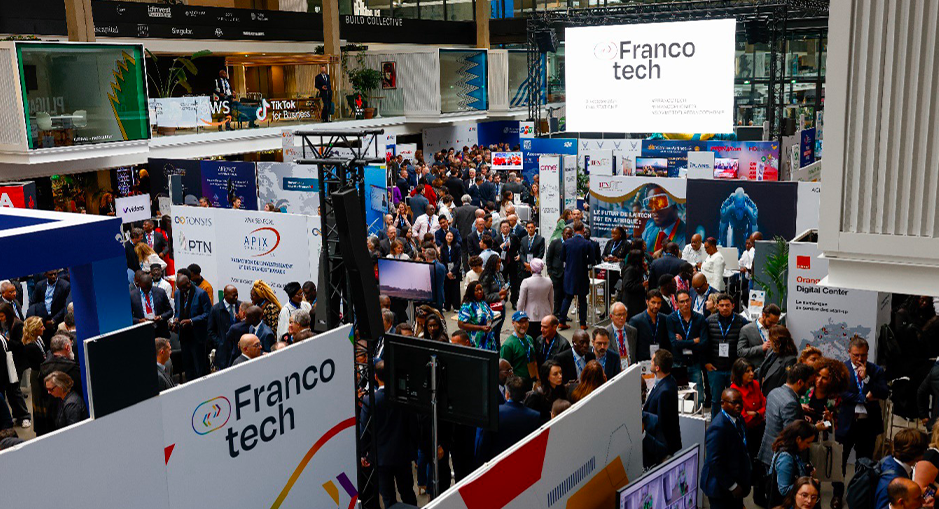
©Romuald Meigneux
At the October 3-4 FrancoTech Summit, held at Station F in Paris, discussions centered around the future of Francophone innovation. Prominent leaders from around the world gathered to explore the intersection of technology, education, and economic growth. The event, which took place in conjunction with the 19th Sommet de la Francophonie, attracted more than 1,500 professionals and 150 exhibitors from nearly 100 countries, positioning it as a pivotal forum for advancing the digital landscape in the Francophone world. Canadian Prime Minister Justin Trudeau, Vietnamese President Tô Lam, and several West African ministers seized the occasion to share their vision of the world’s AI ecosystem and global leadership in innovation. The Prime Minister of Canada told the FrancoTech attendees this would be a crucial year for Canada with VivaTech 2025 naming it the country of honor next June. Trudeau attributed the country’s strong foundation in AI to its academic institutions and the ability to foster emerging talent. However, Trudeau pointed out that the challenge is to retain these talents, as many were drawn to opportunities in the United States. He also stressed the need to focus on responsible and ethical AI development and underscored Canada’s role in launching the Global Partnership on AI with France in 2018, aimed at ensuring AI benefits the global community.
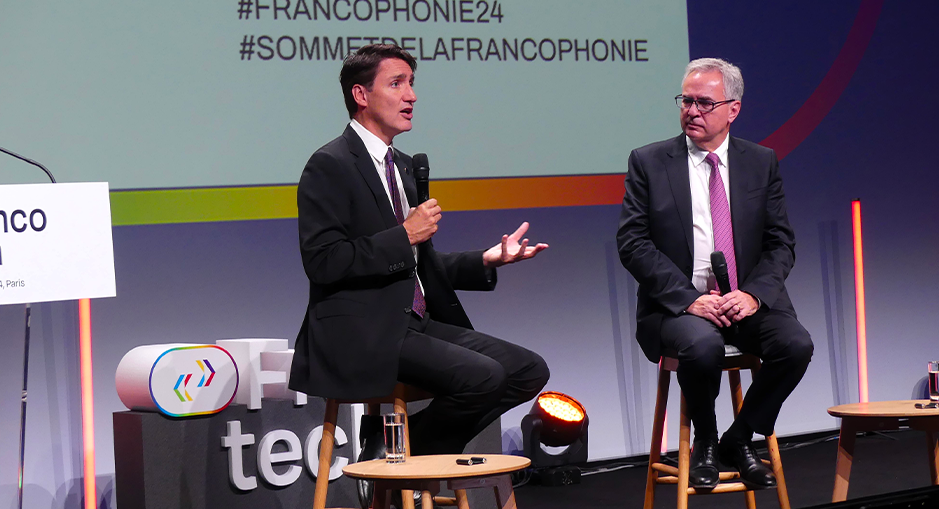
That accord was signed shortly before HEC Paris decided to join one of Canada’s most exciting programs, the Creative Destruction Lab, the brainchild of Ajay Agrawal of Toronto University’s Rotman School of Management. The CDL-Paris programs have since mushroomed into five distinct streams attracting widespread support and attention. The collaboration with XPRIZE, elaborated with CDL Global, has opened HEC Paris to a new focus on carbon removal technologies. Its Next Gen Computing stream jointly operated with CDL-Berlin, dovetails with Canada’s attempts to channel its scientific and technological expertise to address problems that classical computers have difficulty in handling.
Côte d’Ivoire Leaps into the Digital World
Justin Trudeau was followed on the Station F stage by Ibrahim Kalil Konaté, Côte d'Ivoire’s Minister of Digital Transition and Digitization. As a keynote speaker at the event Konaté highlighted the rapid growth of digital infrastructure in Côte d'Ivoire, noting that his West African country has over 30 million mobile money accounts, outpacing the 5 million traditional bank accounts. This statistic is emblematic of the opportunities that digitalization offers for financial inclusion in the region, he told the audience.
It fed into a particularly noteworthy announcement by Konaté, a proposal to create an “Agence internationale francophone de l’intelligence artificielle”, a national Francophone agency on artificial intelligence. The agency’s aim, he said, would be to help shape national AI strategies that reflect local cultures while leveraging the collective strength of the Francophone world. Konaté noted that 17% of global GDP is concentrated within Francophone countries, which represent a population of 320 million people. “This is a tremendous opportunity,” he explained, “especially as AI begins to take root globally. Africa, for once, is not lagging behind. I call for a concerted effort to prevent a digital divide from emerging between Africa and more developed regions like Europe.” Konaté’s point had strong resonance at FrancoTech as there was a particularly strong representation from West Africa.
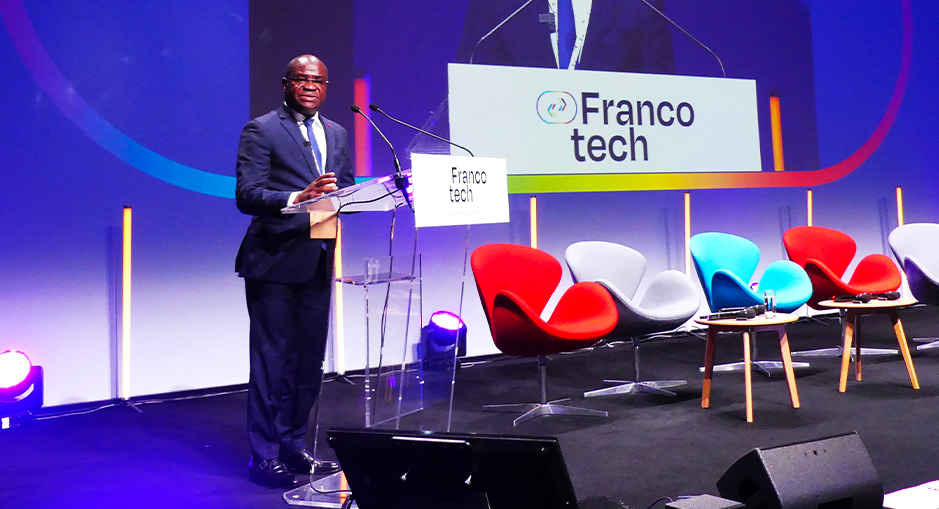
Konaté also shared insights on the government's strategic vision for leveraging AI to address societal challenges. During an exclusive interview with HEC after his speech, the former engineer stressed that Côte d'Ivoire's future Agency would focus on enhancing sectors such as education and healthcare. He noted how AI had played a crucial role during the COVID-19 pandemic by enabling the tracking of infected individuals, thus controlling the spread of the virus.
In terms of infrastructure, Konaté outlined ambitious plans to expand Côte d'Ivoire’s fiber-optic network from 6,632 km to 10,000 km over the next two years. This initiative is part of a broader effort to ensure that all regions, including decentralized municipalities, are connected to the digital world, which he believes will greatly improve the quality of life for Ivorian citizens. Their nation also sent a delegation of top managers to the FrancoTech gathering, where Jean Kacou Diagou, Jean Marie ACKAH, and Ahmed Cisse (of CGECI - Le Patronat Ivoirien) enjoyed a visit to HEC Paris’ Incubateur, also hosted by Station F.
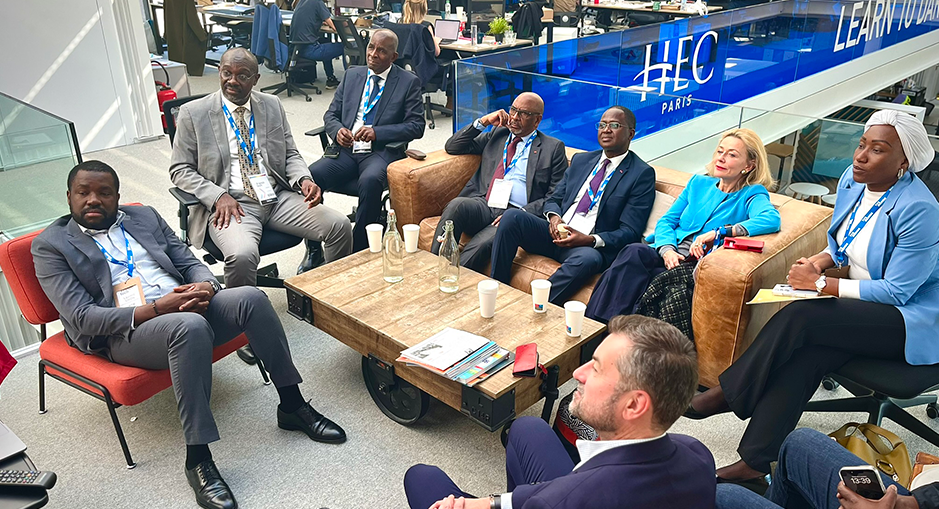
Startups Educating in Underserved Regions
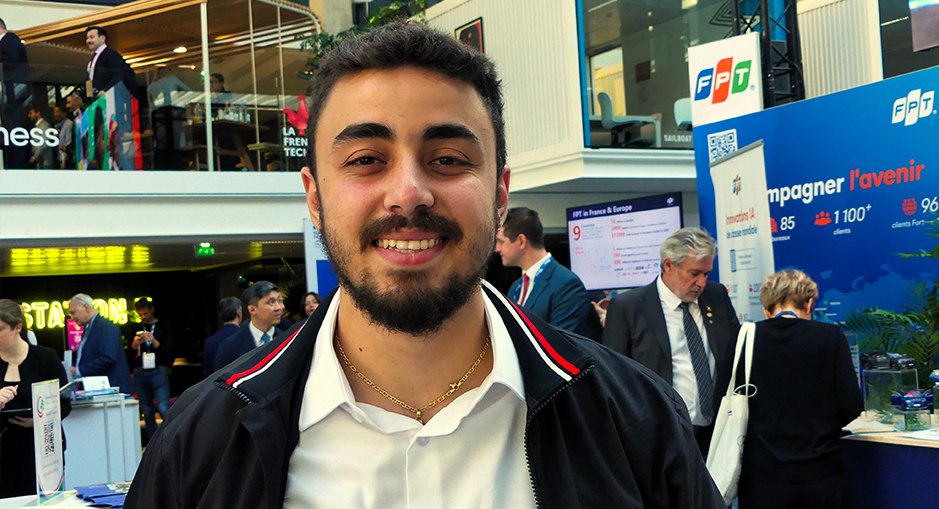
The conference also showcased the journeys of several startup founders who are leveraging technology to solve pressing global challenges. Among them was Lebanese entrepreneur Bryan Youssef, the founder of EduBolt. In these terrible times at home, this ed-tech platform connects students with qualified tutors through peer-to-peer learning. EduBolt has been a game-changer in the “land of the Cedar”, especially in helping students prepare for tough entrance exams. The platform uses AI to tailor educational experiences, analyzing student data to identify strengths and weaknesses and providing personalized feedback. Youssef, a medical student himself, described how EduBolt helped students grasp difficult concepts in physics by incorporating virtual reality (VR). By allowing students to interact with virtual simulations of gravity, they were able to visualize and better understand complex theories that had previously seemed inaccessible.
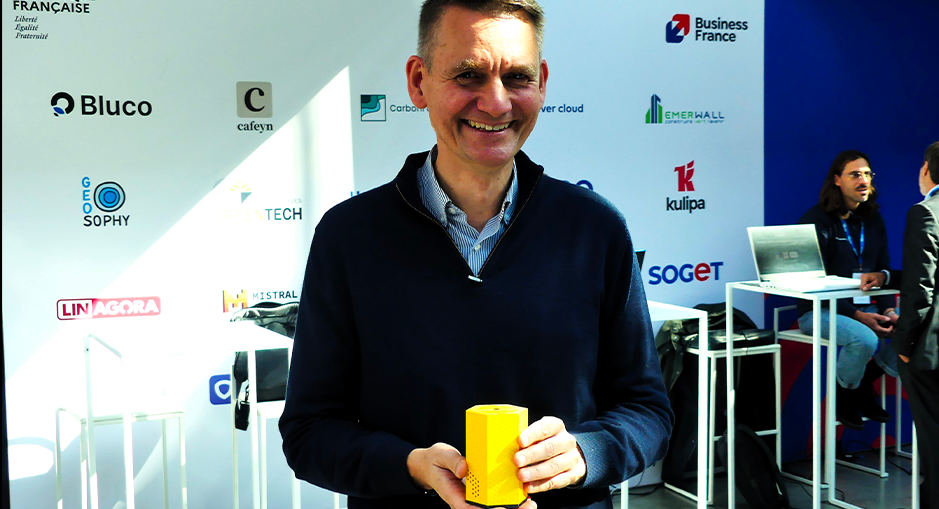
Another groundbreaking startup at FrancoTech was Beekee, co-founded by HEC graduate Jacques Bøgh (H91). Beekee has developed the Beekee Box, a portable, offline digital classroom that allows educational content to be delivered in remote areas without internet access. Bøgh outlined how the Beekee Box has been deployed in over 25 countries, including refugee camps in South Sudan and Shatila, Lebanpon. Its ability to create a Wi-Fi network and store up to 2TB of data makes it a vital tool for education in underserved communities. “We’re also working to integrate AI into its systems,” he confided, “with plans to use AI to assist instructors and students alike, even in offline environments.” This development is being supported by grants from the Bill and Melinda Gates Foundation, showcasing the potential of technology to bring high-quality education to even the most remote areas.
Cross-continental Challenges Shared by Senegal and France
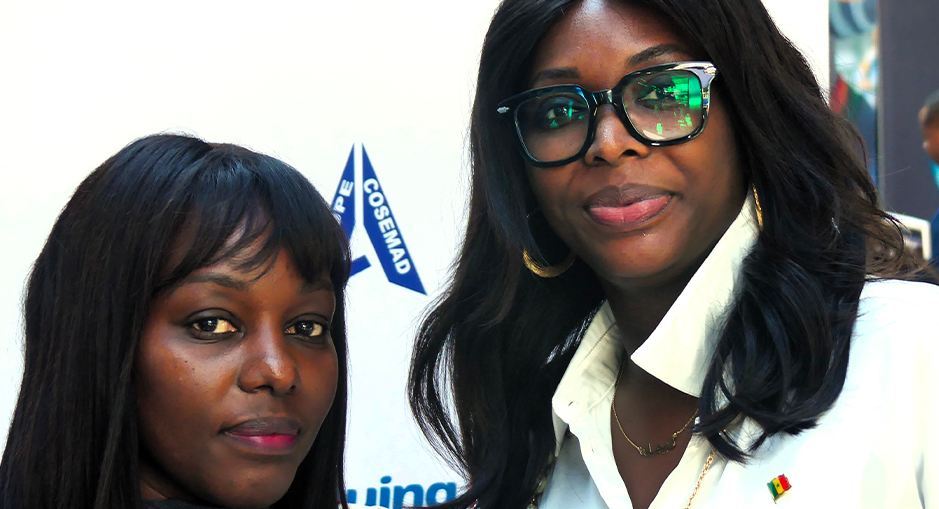
At another stand, Mame Aïssatou spoke about the digital growth in her native Senegal. She’s the head of the digitalization department at Senegal’s National Agency for Investment, called APIX. At the Paris gathering, the experienced engineer emphasized the importance of leveraging Senegal’s youthful population, with 18-35-year-olds eager to embrace new technologies: “The younger generation is highly interested in technology, and we need to give them the tools to drive forward this transformation." Aïssatou’s work focuses on creating digital platforms to encourage innovation and connect investors with local projects. But she also lamented the brain drain to the West which continues to sap her new government’s best efforts: “We must retain our engineers and specialists in high tech technology. Those Senegalese going to Canada and the United states have the knowhow we so need, and we’re pushing for them to go back to the country like I did,” said the graduate from Montreal’s Ecole Polytechnique.

Meanwhile, Audrey Herblin-Stoop, an innovator for Mistral AI, highlighted the risks and responsibilities associated with the rapid growth of new technology. As the only woman on the panel, the French entrepreneur drew attention to the biases present in current AI models. Herblin called for a more inclusive approach to AI development, one that accounts for existing societal inequalities without distorting reality. She emphasized the need for AI models that reflect diverse experiences to ensure fairer outcomes for all.
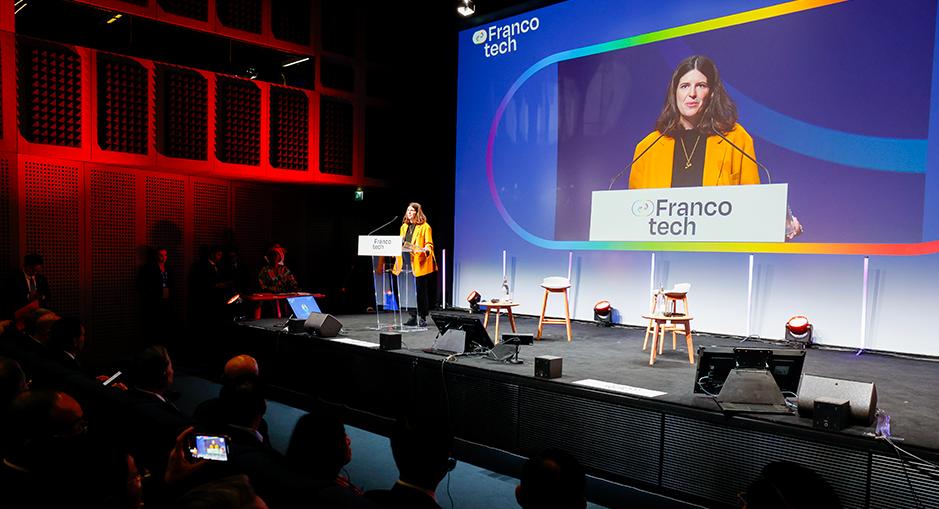
As for France’s Secretary of State for AI and Digital Affairs, Clara Chappaz, she stressed the importance of fostering collaboration within the Francophone world to promote innovation. Chappaz pointed out that France, Canada, and Quebec rank among the top 10 global leaders in AI development, thanks to their cutting-edge research institutions like Mila in Canada and Inria in France. She called for a united effort to harness AI for the benefit of the broader Francophone community, particularly through initiatives like the “Alliance des Technologies pour la Langue”, which aims to harmonize data access and boost visibility for French and Francophone AI solutions. This comes at when specialists suggest Francophonie is losing significant ground, especially in Africa and Canada.
Overall, the FrancoTech Summit attempted to show the importance of digital innovation in shaping the future of Francophone countries. From expanding AI infrastructure to empowering startups that address educational disparities, the event underscored how technology could be a catalyst for economic growth and societal transformation across the global Francophone community… if geopolitical realities didn’t interfere with its cultural ambitions.